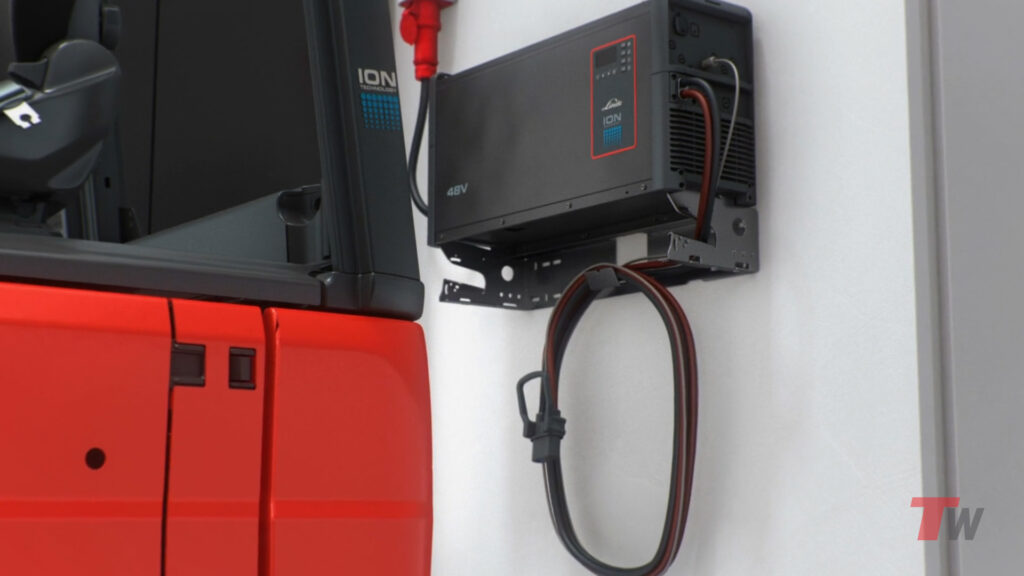Electrical safety is crucial for everyone. Simple habits can prevent serious accidents.
Discover the importance of electrical safety with our latest video on Vimeo. This video highlights seven essential habits to keep you and your loved ones safe. Whether you’re at home or work, these habits are easy to follow and highly effective.
Understanding and implementing these tips can significantly reduce the risk of electrical hazards. Learn how to protect yourself from shocks, fires, and other dangers. Stay informed and stay safe with our comprehensive guide. Watch the video now to ensure your electrical safety knowledge is up-to-date. Dive in and empower yourself with these vital safety practices.

Credit: www.totalwarehouse.com
Introduction To Electrical Safety
Electricity powers our daily lives. From lighting our homes to running appliances, we depend on it. But electrical safety is crucial. Understanding basic safety habits can prevent accidents. Let’s explore electrical safety and its significance.
Importance Of Safety
Electrical safety keeps you and your family safe. It prevents electrical shocks and fires. Safe practices reduce the risk of injury. Follow safety guidelines to protect your home. Electrical safety is everyone’s responsibility.
Common Hazards
Frayed cords are a common hazard. Replace damaged cords immediately. Overloading outlets is dangerous. Use power strips with built-in circuit breakers. Water and electricity don’t mix. Keep electrical devices away from water. Check for faulty wiring. Faulty wiring can cause fires. Regular inspections help identify hazards.
Identifying Electrical Hazards
Electrical hazards can cause serious accidents. Identifying these hazards can save lives. Let’s explore the common electrical dangers in your home or workplace.
Outdated Wiring
Old wiring can pose a significant risk. Homes built decades ago may have outdated electrical systems. Such wiring cannot handle modern electrical loads. This increases the risk of electrical fires.
Signs of outdated wiring include:
- Flickering lights
- Burning smells
- Frequent circuit breaker trips
If you notice any of these signs, contact a licensed electrician. They can inspect and update your wiring.
Overloaded Circuits
Overloading circuits can lead to overheating and fires. This happens when too many devices are plugged into a single outlet or circuit.
To prevent circuit overloads, follow these tips:
- Distribute electrical devices across multiple outlets.
- Unplug devices when not in use.
- Use power strips with built-in circuit breakers.
Avoid daisy-chaining multiple power strips. This can cause serious overloads and hazards.
Remember, safety first. Regularly check your electrical systems. Stay informed, stay safe.
Safe Use Of Electrical Appliances
Electrical appliances are a part of our daily lives. They help us cook, clean, and stay entertained. But using them safely is crucial. A few simple habits can prevent accidents and ensure a safe environment. Let’s explore some essential tips.
Proper Handling
Always handle electrical appliances with dry hands. Wet hands can cause electric shocks. Also, plug and unplug appliances by holding the plug. Do not pull on the cord. This can damage the wires and create hazards. Make sure to use appliances on a stable surface. Unstable surfaces can lead to falls and accidents.
Regular Maintenance
Check your appliances regularly for signs of wear and tear. Frayed cords and exposed wires are dangerous. Fix any issues immediately or replace the appliance. Clean your appliances as per the manufacturer’s instructions. Dust and dirt can affect performance and safety. Ensure ventilation for appliances that generate heat. Overheating can lead to fire hazards.
Childproofing Electrical Outlets
Childproofing electrical outlets is crucial to keep your kids safe. Children are naturally curious and often explore their surroundings. Electrical outlets can pose a serious risk if not properly secured. By adopting a few simple habits, you can prevent potential hazards and ensure a safer environment for your little ones.
Outlet Covers
Installing outlet covers is an easy and effective step. These covers prevent children from inserting objects into the outlets. Look for covers that are easy for adults to remove but difficult for kids to tamper with. They come in various styles, such as plug-in caps and sliding covers. Choose the type that best fits your needs and use them on all accessible outlets.
Safe Cord Management
Managing electrical cords is another important aspect of childproofing. Loose cords can attract the attention of curious children. Keep cords out of reach and secure them to the wall or furniture. Use cord shorteners to minimize excess length. Avoid running cords under rugs or carpets as this can be a fire hazard. Ensure cords are in good condition and replace any damaged ones.
Emergency Preparedness
Emergency preparedness is crucial for ensuring safety in electrical environments. Having the right tools and information can save lives and prevent damage. This section will cover essential aspects of emergency preparedness that everyone should know.
Fire Extinguishers
Fire extinguishers are a must-have in any electrical setting. They provide a first line of defense against electrical fires. Ensure you have the correct type for electrical fires, typically a Class C extinguisher. Place them in easily accessible locations. Regularly check their expiration dates and pressure levels. Train everyone on how to use them properly.
Emergency Contacts
Keep a list of emergency contacts in a visible place. Include local fire departments, electricians, and medical services. Ensure every member of the household or workplace knows where to find this list. Save these numbers in your phone for quick access. This can make a significant difference in critical situations.
Routine Electrical Inspections
Routine electrical inspections are essential for ensuring safety at home and work. These inspections help identify potential hazards before they become serious issues. Regular checks can prevent electrical fires, shocks, and equipment damage. By making these inspections a habit, you can create a safer environment.
Hiring Professionals
Hiring professionals for electrical inspections is a smart choice. Certified electricians have the expertise to spot hidden problems. They use specialized tools to check wiring, outlets, and panels. Professionals can also provide valuable advice on maintaining your electrical system.
Hiring experts ensures a thorough inspection. They can detect issues that might go unnoticed. This can save you from costly repairs in the future. Plus, professional inspections often come with a detailed report. This report can help you understand the condition of your electrical system.
Diy Safety Checks
DIY safety checks are also important for routine inspections. Start by visually inspecting your electrical outlets. Look for signs of damage or wear. Check that cords are not frayed or cracked. Make sure all plugs fit snugly into outlets.
Test your circuit breakers regularly. Flip them off and on to ensure they work. Replace any blown fuses immediately. Always use a voltage tester before touching any wires. This ensures there is no live current.
Keep your electrical panel clean and accessible. Remove any clutter around it. Check for any signs of moisture or corrosion. These can be signs of bigger issues. If you notice anything unusual, contact a professional immediately.
Energy-saving Tips
Saving energy is crucial for reducing electricity bills and protecting the environment. Adopting energy-saving habits is not only beneficial for your wallet but also for the planet. Here are some effective tips to help you save energy at home.
Efficient Appliances
Using efficient appliances is a great way to save energy. Modern appliances are designed to use less electricity without compromising performance. Here are some tips for choosing and using efficient appliances:
- Look for Energy Star labels when buying new appliances.
- Choose LED bulbs instead of traditional incandescent bulbs.
- Unplug appliances when not in use to prevent standby energy consumption.
- Use a smart power strip to manage multiple devices.
Smart Home Devices
Smart home devices offer convenience and energy savings. These devices can be controlled remotely and programmed to operate efficiently. Consider integrating the following smart devices into your home:
- Smart Thermostats: Adjust your heating and cooling based on your schedule.
- Smart Lights: Automate your lighting to turn off when not needed.
- Smart Plugs: Control your appliances remotely and monitor energy usage.
- Smart Blinds: Optimize natural light and reduce heating and cooling costs.
Using these smart home devices can significantly reduce your energy consumption and make your home more comfortable.
Implementing these energy-saving tips can lead to substantial savings on your electricity bills. Plus, it helps in reducing your carbon footprint, making the planet greener and cleaner.
Conclusion And Resources
In this section, we will wrap up the key points from our blog post on “7 Electrical Safety Habits Now On Vimeo.” We will also provide some helpful resources to enhance your understanding and application of these safety habits. Ensuring safety in your electrical practices is crucial. Let’s dive into the summary and resources.
Summary Of Tips
Review the electrical safety tips shared in the blog post. Always turn off the power before working on electrical devices. Use insulated tools to prevent electric shocks. Avoid overloading outlets to reduce fire risks. Keep electrical devices away from water. Regularly inspect cords and plugs for damage. Ensure proper grounding of electrical systems. Follow manufacturer instructions for all electrical equipment.
Helpful Links On Vimeo
Vimeo offers a variety of resources to help you understand electrical safety better. Here are some helpful links:
- Electrical Safety Tips Video
- Electrical Safety Training Series
- How to Inspect Electrical Cords
- Understanding Grounding Systems
- Using Insulated Tools Safely

Credit: fortune.com
Frequently Asked Questions
What Are Electrical Safety Habits?
Electrical safety habits include practices that prevent electrical accidents. These habits involve proper handling, maintenance, and awareness when dealing with electrical devices.
Why Is Electrical Safety Important?
Electrical safety prevents accidents, injuries, and fatalities. It ensures the safe operation of electrical devices and protects property from electrical hazards.
How Can I Improve Electrical Safety At Home?
Improve electrical safety by regularly inspecting cords, using surge protectors, and avoiding overloading outlets. Always follow manufacturer guidelines.
What Are Common Electrical Safety Tips?
Common tips include unplugging unused devices, keeping water away from electrical sources, and using proper wattage bulbs. Educate family members.
Conclusion
Creating safe electrical habits is essential for everyone. These habits prevent accidents. They protect your family and your home. Watch the Vimeo video to learn more. Practice these safety tips daily. Share them with others too. Safe habits save lives.
Stay informed. Stay safe. Your commitment to safety matters.
PEOPLE ALSO READ
Electric Safety: 4 Common Mistakes Using Extension Cords
Top 7 Best Climbing Gear for Linemen in 2025 – Stay Safe & Efficient


